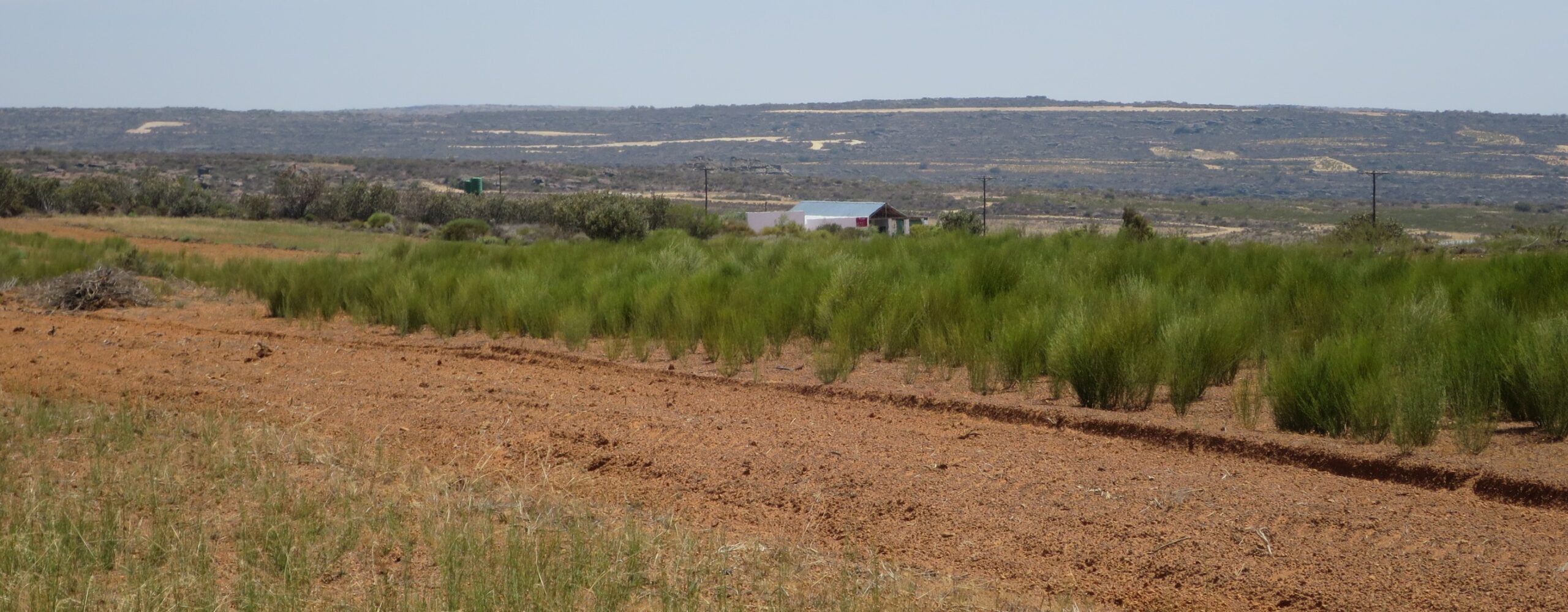‘The Suid Bokkeveld is where my heart lies, with the farmers who share this beautiful landscape. They are very keen to learn new things and one of the woman farmers told me she will never stop learning how to farm better for as long as she lives.’ From her base and home in the village of Nieuwoudtville in the Northern Cape, Shannon Brandt, the Director of Indigo Development and Change, coordinates sustainable farming projects in the Suid Bokkeveld region, south of Nieuwoudtville.
One of the latest projects focused on building capacity in sustainable stewardship and climate-smart agriculture (CSA) among the region’s small-scale famers. A WWF Nedbank Green Trust initiative, funded by Nedbank from 2018 – 2022, it is part of WWF’s landscape and biodiversity conservation drive.
The 17 Suid Bokkeveld farmers participating in the project, known as the “organic team”, grow rooibos on anything from a 5×5-metre plot to 50 hectares on privately-owned and community-owned farms such as Melkkraal. Organic rooibos tea is sought after in Europe.
‘During the training we discussed climate-wise farming methods, such as organic mulching and liquid composting – a compost that you dilute with water and spray it on the land,’ Brandt explains. Indigo’s partners in the project included the Environmental Monitoring Group, Heiveld, Spier the Goedgedacht Trust and local farmers from the Nieuwoudtville area.
Trial plots were set up for evaluation and monitoring of CSA practices at three local farms, Melkkraal, and Kortkloof and Bloemfontein – where the rooibos is dried on the tea court and then packed into 50kg bales for export. It provides a seasonal income; the farmers plant the rooibos in the winter months, harvest it in summer and are paid on delivery.
The trial plots serve as demonstration sites for the use of CSA in this arid region where other small and large-scale farmers, researchers, and other stakeholders could visit and learn about methods suitable for sustainable agriculture under arid conditions affected by climate change. The project benefitted over 300 people in the Suid Bokkeveld farming community.
‘We also do climate change preparedness workshops every three or four months to share seasonal forecasts and to reflect on experienced weather and farming practices using climate calendars,’ says Brandt. The farmers add their own indigenous knowledge of the natural environment to see what the weather is bringing for the week, month and season. And they share their successes and failings. It’s a platform from which future adaptation projects can be developed.
The farmers who have been farming for decades say that they are seeing dramatic changes in the weather, and have experienced prolonged, severe droughts. The farmers here face an extreme climate that ranges from over 40° Celsius in summer to minus four degrees in winter, and periodic devastating thunderstorms.
‘This project is the second one we’ve funded in the Suid Bokkeveld, in partnership with Indigo,’ says Tobie Badenhorst, Head of Group Sponsorships and Cause Marketing at Nedbank. ‘The first one – from 2013 – 2015 – focused on livestock farming adaptation and monitoring for climate change. It was in response to a request for help to better understand the weather and changing climate patterns from several local small-scale sheep farmers, all women.’
They expressed concern that the summer and winter extremes are becoming more extreme and that they need to know how to cope with the effects on their livestock, vegetation and water supply.
During extreme heat and cold, the sheep need to be able to access areas that are sheltered from the elements. In anticipation of this, the farmers enhanced their ability to read the weather patterns in advance with the help of automated weather stations. They then move the sheep to more protected areas before the weather hits. They also adjust their shearing times according to the weather predictions. Findings, local knowledge and lessons learnt were shared with other small-stock farmers in the area.
‘Through these projects the small-scale farmers are adapting and finding ways to farm more sustainably in our harsh climate,’ says Brandt, adding that she has leant a huge amount about climate-smart agriculture during the 16 years she has been with Indigo. She started as an intern in 2007 after completing her matric in Nieuwoudtville. This year she graduated with a diploma in agriculture.








